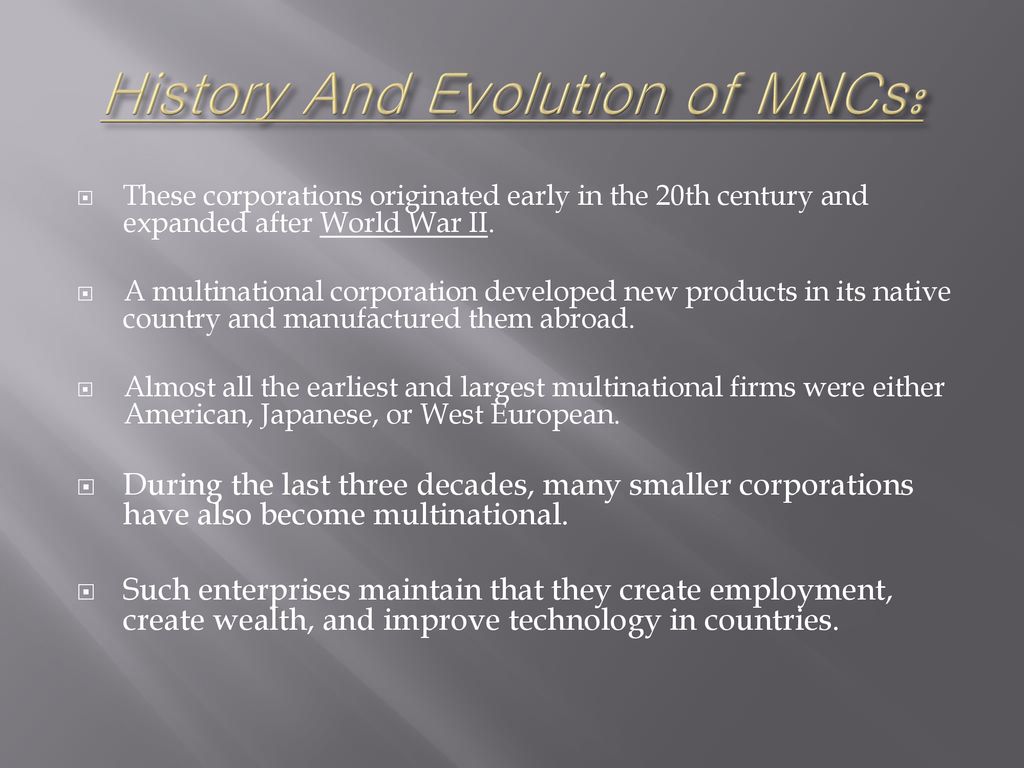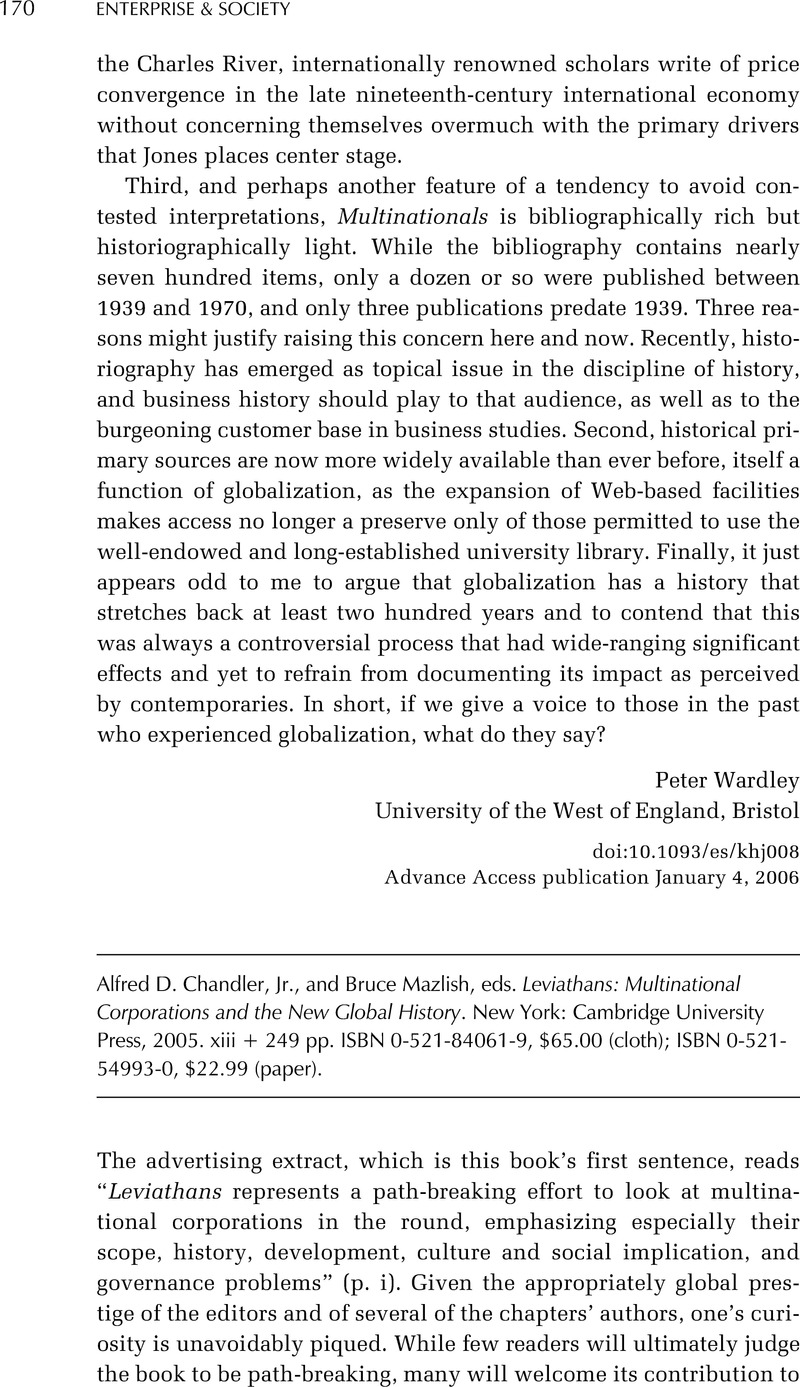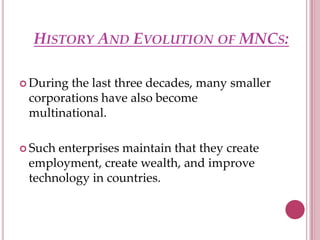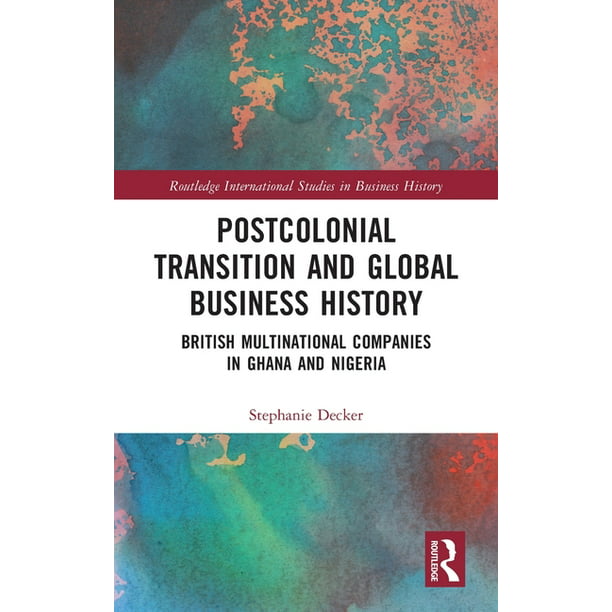Multinational corporations (MNCs) are businesses that operate in multiple countries and have a global reach. They have a long history, with the first recorded MNC being the East India Company, which was founded in 1600.
In the early days of MNCs, they were primarily focused on trade and colonization. The East India Company, for example, was granted a royal charter by Queen Elizabeth I of England to trade with the East Indies. As the company expanded its operations, it also became involved in territorial conquest and colonization.
Over time, MNCs have evolved and their focus has shifted from trade and colonization to other areas such as manufacturing and service industries. In the 19th and early 20th centuries, MNCs were driven by the desire to access raw materials and new markets. These MNCs often had close ties to their home governments and were seen as instruments of national power.
After World War II, the global economy underwent significant changes, including the rise of globalization and the emergence of new economic powers such as Japan and the countries of Southeast Asia. This led to a shift in the way MNCs operated, with a focus on efficiency and cost-cutting rather than territorial expansion.
Today, MNCs play a significant role in the global economy, with many of them ranking among the largest and most influential companies in the world. They have faced criticism and controversy for their environmental and social impacts, as well as for their perceived lack of accountability. At the same time, MNCs have also been credited with bringing economic development and technological advancement to the countries in which they operate.
In conclusion, the history of MNCs is a long and complex one, with a focus that has evolved over time. From their early beginnings as instruments of trade and colonization, MNCs have become a major force in the global economy, with a reach that extends across borders and industries.









